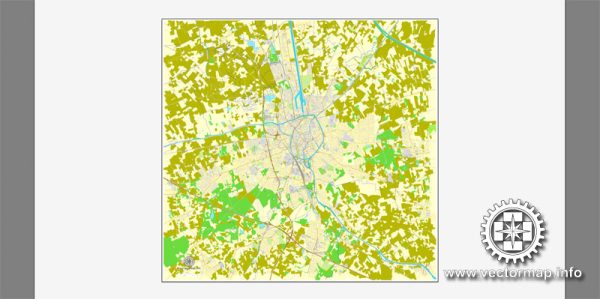Bruges, a picturesque city located in northwest Belgium, is renowned for its rich history, well-preserved medieval architecture, and a thriving tourism industry. Its economy is multifaceted, with various sectors contributing to its financial stability and growth. Here’s an economical description of Bruges:
- Tourism: Bruges is a major tourist destination in Europe, attracting millions of visitors each year. The city’s well-preserved medieval buildings, picturesque canals, and cultural heritage make it a popular spot for tourists. The tourism industry plays a significant role in the local economy, generating income through hotels, restaurants, guided tours, and various attractions.
- Port of Zeebrugge: Zeebrugge, a major seaport, is located just outside Bruges. It serves as a vital gateway to international trade and cargo transport, making it a crucial economic driver for the region. The port handles a diverse range of goods, including containerized cargo, vehicles, and bulk commodities.
- Manufacturing: Bruges and its surroundings are home to various manufacturing industries, such as food processing, textiles, and chemicals. The region is known for its chocolate production, with several well-known Belgian chocolate companies based in and around Bruges.
- Retail and Commerce: Bruges boasts a thriving retail sector, with shops, boutiques, and marketplaces that cater to both residents and tourists. Souvenirs, handmade crafts, and artisanal goods are popular items available in the city’s commercial districts.
- Education and Research: Bruges is home to several educational institutions, including the College of Europe, which attracts students and researchers from across Europe. Education and research-related activities contribute to the local economy through student spending, academic activities, and knowledge-based industries.
- Real Estate: The historical charm of Bruges and its UNESCO World Heritage status have contributed to a strong real estate market. Residential and commercial properties in the city are in demand, both for local residents and for investors looking to capitalize on the tourism sector.
- Agriculture: Agriculture, while less dominant than in rural areas, still plays a role in the economy of the Bruges region. Farms in the surrounding countryside produce crops, livestock, and dairy products.
- Creative Industries: Bruges has a burgeoning creative industry, with artists, designers, and artisans establishing themselves in the city. The creative sector includes visual arts, crafts, and cultural events, contributing to the city’s cultural vibrancy.
- Technology and Innovation: Bruges is also striving to develop a technology and innovation sector, with efforts to promote entrepreneurship and startups. The city is home to some innovative companies and initiatives that focus on sustainable development and green technologies.
Overall, Bruges’ economy is a blend of traditional and modern elements, with tourism, the Port of Zeebrugge, and manufacturing sectors playing crucial roles. The city continues to evolve and adapt to changing economic trends while preserving its unique historical and cultural heritage.


 Author: Kirill Shrayber, Ph.D. FRGS
Author: Kirill Shrayber, Ph.D. FRGS